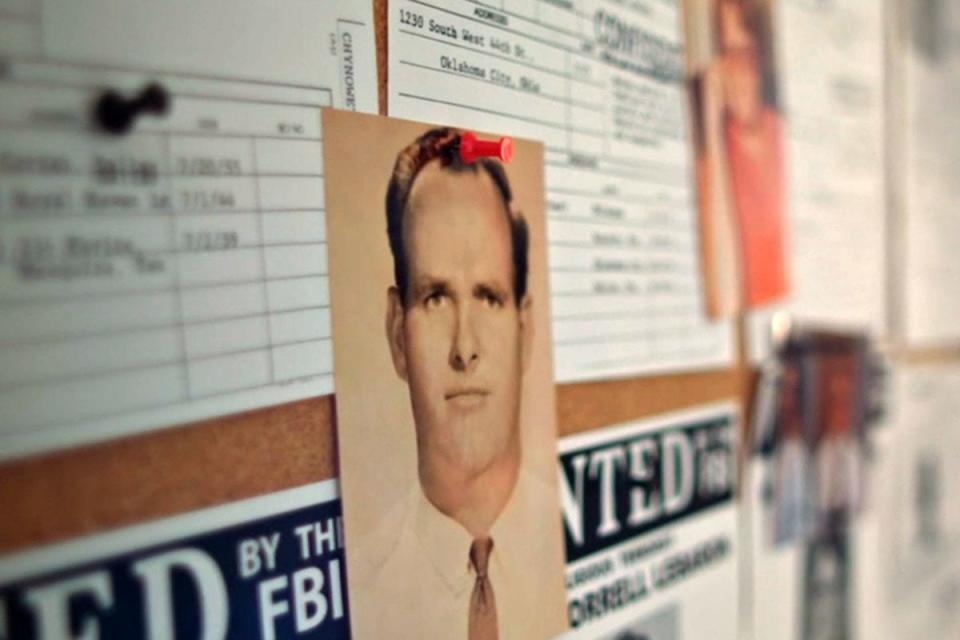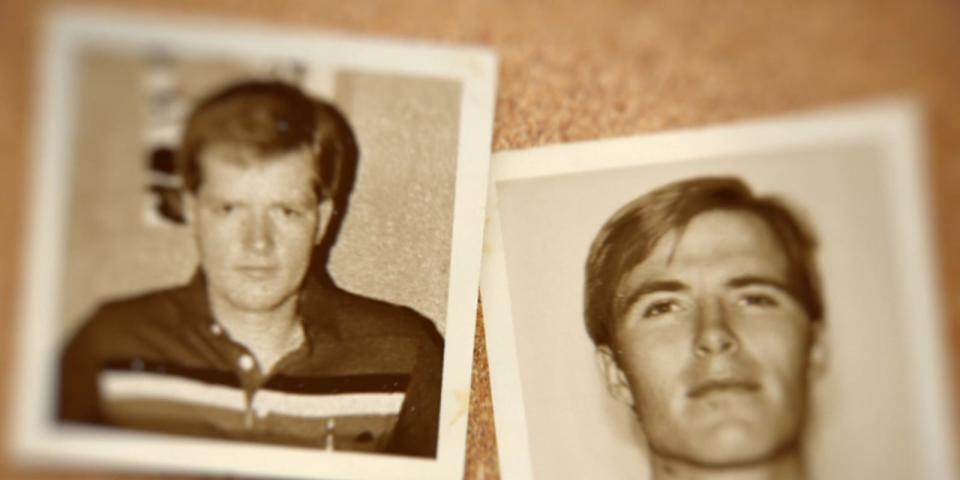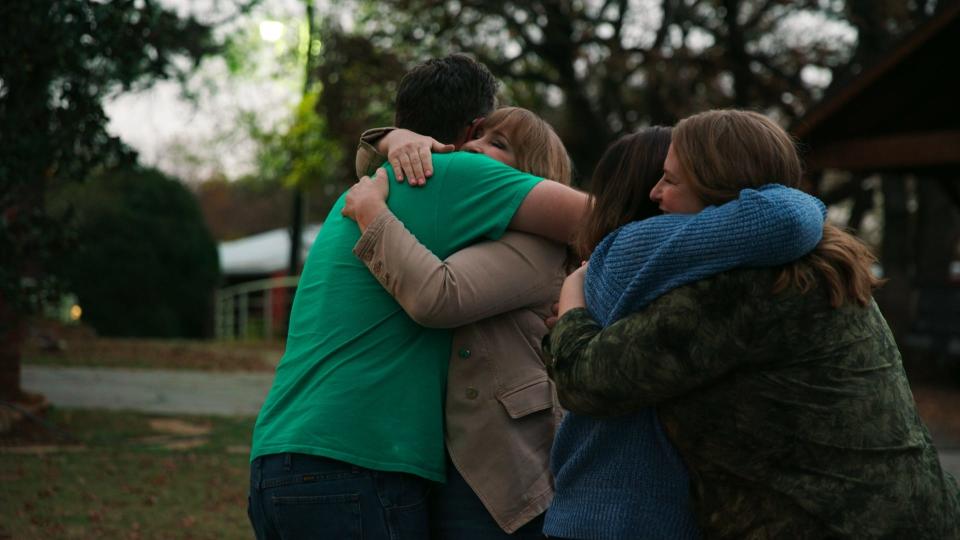How Ervil LeBaron's daughters survived his murderous cult and undid years of brainwashing
Celia and Anna LeBaron are the children of murderous cult leader Ervil LeBaron.
LeBaron ordered his followers — including his wives and children — to commit dozens of murders.
The LeBaron saga is the subject of the ABC docuseries "Daughters of the Cult."
To look at them, you would never know that Celia and Anna LeBaron grew up in a violent cult.
Both LeBaron sisters are in their 50s, energetic with kind eyes — the type of women to run a PTA meeting or throw a block party. Yet both survived brainwashing, religious indoctrination, and neglect at the hands of their parents.
On a cold night in January, Celia and Anna spoke with Business Insider from their respective homes in Dallas about what it was like to grow up in the polygamist Church of the Lamb of God, a radical offshoot of Mormonism where their father, Ervil LeBaron, claimed to be the one true prophet of God. Ervil's belief in his own divine power led him to murder anyone who disagreed, including his own brother and children.
His crimes and the cult are the subject of the new ABC News documentary, "Daughters of the Cult."
Celia and Anna say they barely knew their father — Anna only recalls meeting him twice. They were just two of more than 50 children Ervil fathered with his 13 wives. But his presence and his crimes loomed large over their lives. The family constantly moved around to protect Ervil, traveling between the US and Mexico. As children, Anna and Celia could spend months away from their mother, living instead with a far-flung half-sister or member of the church in sub-poverty conditions.
"Finding a sense of safety took me a long time," Anna said.
"I faked it till I made it," said Celia.
A yearslong killing spree

Ervil LeBaron was one of seven sons of Alma Dayer LeBaron, Sr., a polygamist Mormon who established a community in Mexico — Colonia LeBaron — after the Church of Jesus Christ of Latter Day Saints formally rejected the practice of polygamy. When Alma died in 1951, leadership of the church was passed on to Ervil's brother Joel. Joel established the Church of the Firstborn of the Fulness of Times and ran it for around 20 years.
By the early '70s, Ervil had broken off from Joel to form the Church of the Lamb of God. Ervil and his followers believed in blood atonement, a long-abandoned practice in which the blood of sinners needed to be shed in order for them to ascend to heaven.
It became the justification for a yearslong killing spree. First, Ervil took out his brother Joel, and then he began targeting leaders of competing religious sects and cult members he believed were a threat to him. In 1981, after several years of living on the run, Ervil was sentenced to life in prison after being found guilty of ordering the death of sect leader Rulon Allred.
Ervil died in prison in 1981 but continued to lead his followers from beyond the grave with "The Book of the New Covenant," a rambling 480-page text he'd written while behind bars. Hidden within it were the names of 50 people Ervil demanded his followers blood atone. His sons Heber and Aaron took charge and began ruthlessly working their way through the names.

Their murder spree culminated in what became known as the Four O'clock Murders, in which three men and a child were killed at the same time on June 27, 1988, the anniversary of the death of Joseph Smith. Heber and Aaron, their sister Patricia, and another man were found guilty of the murders. They each received sentences ranging from 45 years to life. Their younger brother who was a minor at the time was a cooperating witness and received a five-year sentence.
By that point, both Celia and Anna were out of the church. While Anna had run away from home in 1982 when she was 13, it took Celia several more years to leave — her breaking point was being told she couldn't complete her senior year of high school. Neither of them had any idea that their father and his followers had waged such a violent campaign of terror until they were in their late teens.

A chaotic childhood
As children, the sisters say they often went without food. They lived an itinerant life, often moving between run-down shacks without running water or electricity. Ervil saw the children as an inexpensive labor force, and put them to work for the family's appliance repair store. At age 9, Anna was sent to Mexico so she could be appraised by the man her father had promised her to.
Church doctrine said that children who misbehaved could be stoned to death, in line with the Ten Commandments.
"That's in the Old Testament. That's the commandment: honor thy father and thy mother," Celia said. "Meaning if you don't obey, if you're a rebellious child, you get stoned to death. We were raised on that all our lives. You knew that growing up, you were aware of that."
Their mother, Anna Mae LeBaron, blindly followed Ervil's doctrine — even when it meant abandoning her children for long stretches of time to travel with Ervil as his secretary.
Being raised with a mother who frequently disappeared for long stretches profoundly impacted how Celia and Anna parented their own children. Celia said she raised her three now-adult kids with attachment-style parenting.
"I mean, my babies were never without me for more than an hour," she said. "I never wanted them to ever feel insecure about where I was."
Anna admits that she parented her five kids from a place of fear.
"Instead of my faith in the world and faith in the goodness of others, I parented from fear, and I think that impacted them to some degree because I didn't really trust the outside world, even though we were part of it now," she said.
But Anna is proud of the stability she was able to give her children. They lived in the same house for 17 years.
"All five of my kids graduated from the same school. I was able to create that safety and stability for my children that my parents weren't able to do for me," she said. "It's possible to create a different life than the one you were born or raised in."
Looking for answers

Before their mother's death in 2019, Celia and Anna each confronted her about their childhood.
"I know we were quite often neglected, even as little children. I remember asking my mom, 'How could you do that? How could you just let us run around and not have supervision and not be watching us and taking care of us?'" Celia said.
Her mother said she "trusted God" to care for them.
"She was weak-minded and brainwashed and allowed her children to suffer, effectively sacrificing us on the altar of her religion," Anna said.
"Yeah, we were just Isaac right there on her altar," Celia added.
Eventually, Celia said, her mother "apologized to me and said, yes, Ervil was not a prophet, and what you went through was not your fault. Abuses that were put upon your head were not fair or right. Her saying that to me, that it was wrong and you didn't deserve that, was quite healing to me."
For Anna, the moment came as she was working on her 2017 memoir, "The Polygamist's Daughter," in which she went public about her traumatic childhood for the first time.
"I knew I didn't want her to sit and read that book by herself. I knew it was going to break her heart to read those things. So I showed up with a printed copy of the manuscript and we sat and I read the whole thing to her," Anna said. "Both of us cried and cried and cried. it was healing for me to see her grief over my suffering."
Both Celia and Anna LeBaron attempted to reach out to their relatives in prison. Anna has periodically been in touch with Heber.
"I'm open to all of that because what I do know about all of them is there's not one single one of them, even the ones serving time in prison, who believe in Ervil LeBaron's teachings now."
Celia was in touch with Heber at one point but receiving his letters caused her too much emotional grief.
"One of the things he said in one of his letters was 'you don't need to be afraid of me," Celia said. "And I responded back, I said, 'I'm not afraid of you. I'm afraid of your religion.' Because I knew my brother was a gentle person."
She no longer speaks to him.
Celia recognizes that it could have just as likely been her that committed crimes for Ervil, recalling how blood atonement was taught to her and the other children from a young age.
"I was fully indoctrinated, had my brain twisted about how taking someone's life helps them get to heaven because they get to atone for their sin and not have to spend their life in outer darkness," she said. "That was something we were taught — that you're actually helping these people by taking their lives. That's really such a warped way of believing, and that is what we were taught."
That's why Anna believes that her relatives — even those who took part in the crimes — deserve fresh consideration.
"Without the brainwashing, none of them were dangerous. They were good, good people, and their brains were just twisted with this horrible, sickening doctrine," she said. "But once they were able to think for themselves and get out of the cult, they became the good people that they always had been."
Read the original article on Business Insider

 Yahoo News
Yahoo News 
